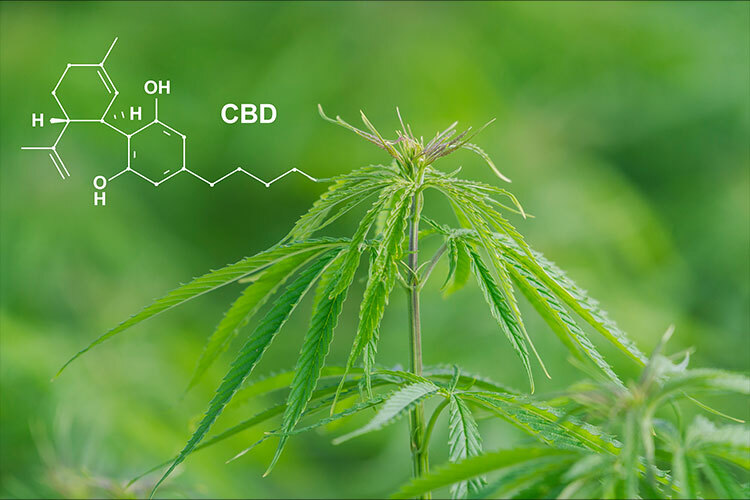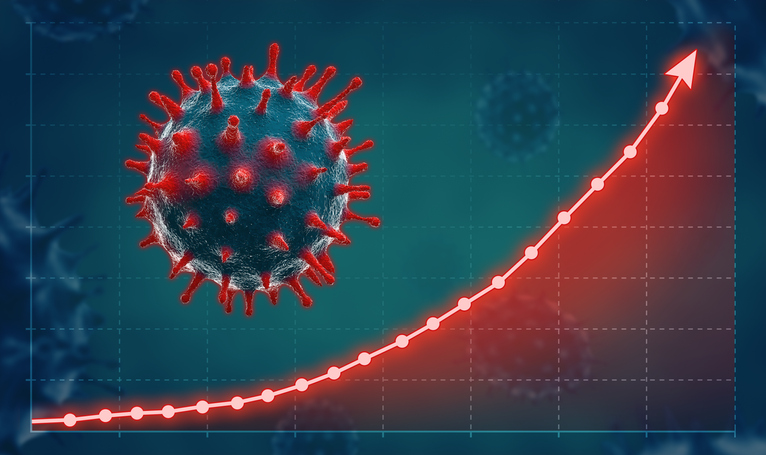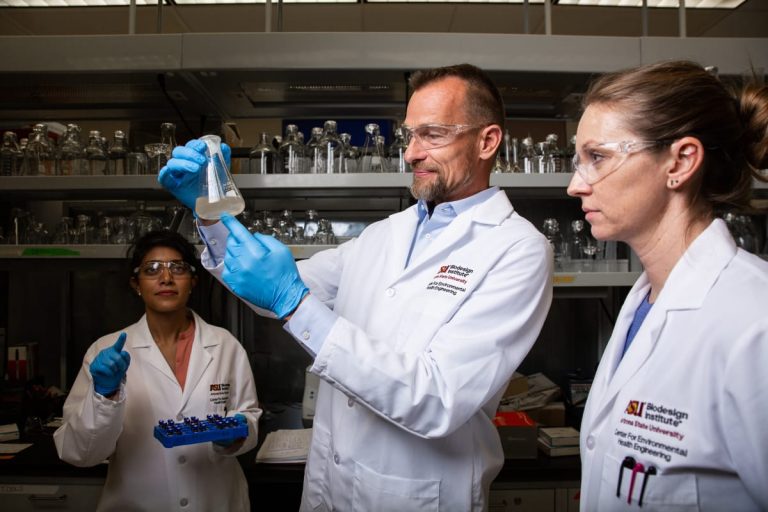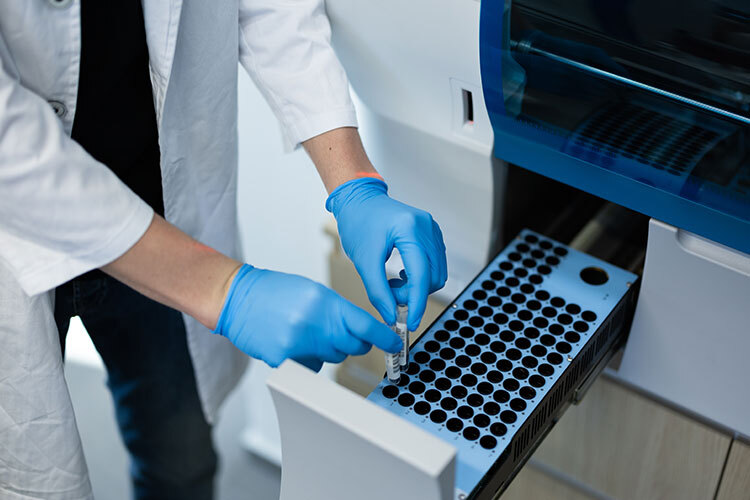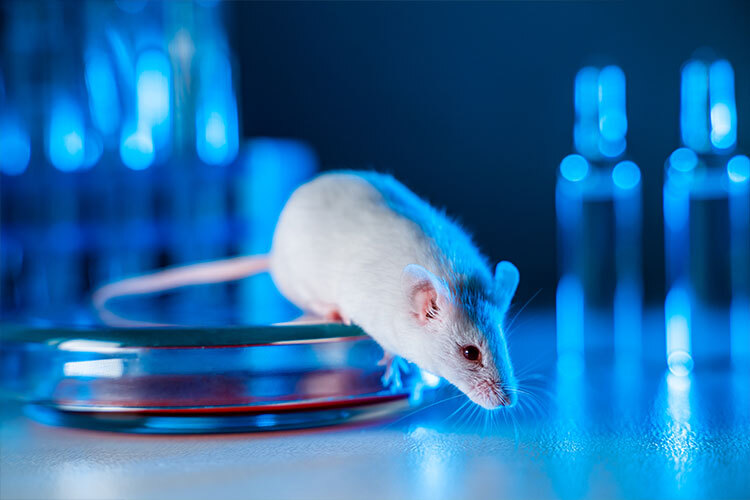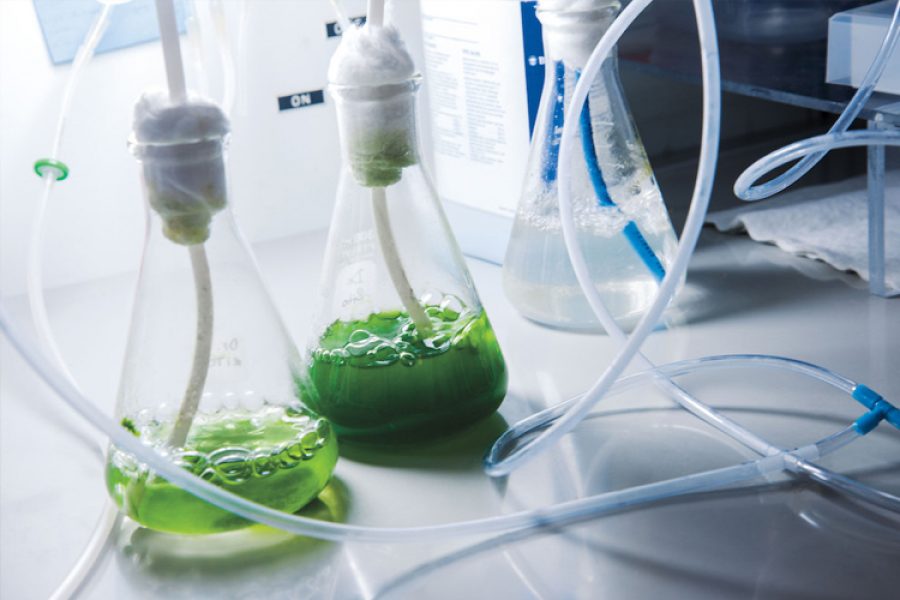Around the world, CBD has become an increasingly important molecule in the treatment of diseases such as epilepsy, Alzheimer’s disease and Parkinson’s, as well as conditions such as chronic pain, insomnia and anxiety.
“In the medical and scientific community, cannabinoids represent an area of opportunity to help in many complex chronic diseases,” said in an interview with TecScience Gerardo García Rivas, a researcher at the School of Medicine and Health Sciences from Tec de Monterrey and leader of the Experimental Medicine and Advanced Therapies Unit at the Institute for Obesity Research.
Cannabidiol, commonly known as CBD, is one of the main active compounds in cannabis or marijuana. Together with tetrahydrocannabidiol, THC for short, they are the two most abundant components in this plant and have gained great popularity for their therapeutic capacity.
This is due to the fact that our body, and that of other mammals, is full with receptors for cannabinoids – organic compounds such as CBD or THC – that are activated when we ingest them.
CBD Studies in Mexico
According to Fernando Cantú Flores, an anesthesiologist and researcher at the Pain Clinic from Tec Salud, these receptors are widely distributed in the brain, lungs, vascular system, some muscles, intestinal tract, liver, immune system, bones , spleen and skin.
Various studies have shown that, by turning on these receptors, both CBD and THC have the ability to inhibit pain transmission and reduce inflammation.
Unlike THC, however, CBD does not have psychoactive effects on the brain -those associated with the feeling of “getting high”. This is one of the reasons why the use of CBD to help treat various medical conditions is currently booming.
In addition to these effects, it has been observed that CBD can modulate communication between neurons, as well as protect mitochondria, a cellular organelle that is responsible for generating energy within cells.
CBD and Covid-19
Throughout a decade, at Tec de Monterrey, various research groups have explored the medicinal potential of CBD. The molecule has been studied in cell cultures, animal models and, recently, the first clinical study with human patients was carried out.
Together with the Canadian company Cardiol Therapeutics, and international scientists, a group of researchers from Tec Salud, led by Carlos Jerjes Sánchez, academic director of the Cardiology specialty, tested whether CBD is capable of preventing or reducing cardiovascular symptoms in patients with COVID-19.
The study, conducted in 2021 in the United States, Canada, Brazil and Mexico, recruited around 422 volunteer patients who were older than 18 years of age, had Covid-19 in a non-critical condition, and a history of cardiovascular or cerebrovascular diseases.
“This is the first study of its kind approved in Mexico and Latin America,” said in an interview with TecScience Arturo Martínez Ibarra, Cardiology resident at Tec de Monterrey and one of the researchers who worked on the study. “In addition, Tec Salud was the center that achieved the highest recruitment of patients, with a number of 31”.
The patients selected for the study in Mexico were hospitalized at the San José Hospital and were administered synthetic CBD in the form of pills.
Over the course of 28 and 60 days, these people were monitored and studied to compare against a control group and to find out if CBD reduced the number of cardiovascular events, such as strokes, arrhythmias, palpitations or heart failure.
The study was randomized, controlled and double-blind, “this means that neither the research team, nor the patients knew who had received CBD and who had received a placebo,” explains Martínez Ibarra. These types of studies are the most rigorous in scientific terms and allow greater confidence in the results.
Despite the fact that the results of the study have not been officially published, Martínez Ibarra explains that the patients he followed and observed had a good course of the disease, with fewer cardiovascular complications than expected for their clinical profile.
In addition, the patients had few side effects. Some of these included nausea, bloating, constipation, diarrhea, and drowsiness, but none were severe and most improved over the days.
The study carried out with patients with non-severe Covid-19 shows that this molecule has protective and positive effects on the cardiovascular system, for which reason it will be sought to establish study protocols in other diseases associated with the heart and circulatory system.
“We were able to verify that our protocol is safe and effective,” says Martínez Ibarra.
Future: More CBD research in medicine
In the long term, the three researchers anticipate that more and more studies will be carried out with CBD in the Tec de Monterrey, the rest of Mexico and the world. This is because mounting scientific evidence proves beyond any doubt that CBD helps with many types of ailments.
Cantú Flores from the Pain Clinic says that “many studies definitively show that cannabidiol has a much greater action than a placebo in controlling pain and spasms.” This holds great promise for the treatment of patients with terminal cancer, Parkinson’s and epilepsy, including children.
According to them, the most important thing to remember is that CBD treatments are not intended to replace proven medications or procedures, but rather to complement them.
It is also necessary to ensure that its use is specifically designed for the needs of each patient, because “CBD is not something that works for everything, or for everyone, and it is not a game either,” exclaims Cantú Flores.
The legal barriers of CBD
One of the biggest obstacles to the development of clinical research with cannabidiol is the legal status of cannabis and the lack of regulation of products derived from it, such as CBD and THC.
Legislators and governments around the world argue the fact that sometimes CBD extracted directly from the plant can have significant amounts of THC, which means that it does have the psychoactive effects for which its use is prohibited.
However, for García Rivas it is important to clarify that in many studies carried out with the greatest scientific rigor worldwide, the CBD used is synthesized in a laboratory, so amounts of THC are usually below 0.3% and has no euphoric effect on the brain.
In the United States, Canada, Germany, Brazil and Mexico, more and more protocols are being approved and the push for the legalization of the controversial plant continues. “I believe that the issue of medical cannabis in the future is going to be a very good option, not to replace medicine, but as an assistant,” says Cantú Flores.
